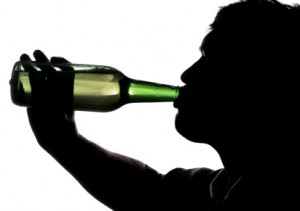The idea that your child is drinking or drugging may be impossible to face–and for some parents, they don’t until it is too late. However, if you suspect that your child may be drinking, do not shrug it off, because drinking often leads to drug use which can lead to devastating health consequences and even death. You know your child, and it is imperative that you follow your instinct and speak up right away.
When to Intervene
The word “intervention” can be frightening, but that is often because parents don’t know what it is. An intervention is not an attack on your child, nor does it always end in rehab. It can be as simple as a discussion in which you let your teen know that you are concerned about his or her drug use.
The purpose of an intervention is to confront his drug or alcohol problem and guide him to help if he needs it. For many parents, this can take place in the home and may be a matter of letting your child know that you don’t want him drinking or doing drugs. In fact, sometimes this is all it takes to get him to stop.
Intervention can be uncomfortable for both the parents and the child, but it can never be done too early. Even if you think it is unnecessary or that you might be wrong, it is better to be safe than sorry.
Guidelines to Stopping Drug Use
If you are uncertain of how to approach your child about his drug or alcohol use, it is a good idea to contact a professional interventionist for help. An informal  intervention consists of a personal discussion with a drug or alcohol center. It may be as simple as consulting you on how to talk to your child about using, or it may mean sitting down with both you and your child and mediating a discussion.
intervention consists of a personal discussion with a drug or alcohol center. It may be as simple as consulting you on how to talk to your child about using, or it may mean sitting down with both you and your child and mediating a discussion.
While it is important to intervene early, there are a few circumstances in which it would not be a good idea to attempt conversation with your child about his drinking or drugging:
- If your child is drunk or high. It is unlikely that your conversation will be very productive or even remembered.
- If you aren’t prepared. This is not going to be an easy conversation, so go into it ready for a barrage of questions and reactions from your child. Continue to research and mentally prepare until you feel ready to intervene.
- If you are angry. Getting upset over the matter will go nowhere and will only drive your child farther away. Wait until you’ve calmed down before you bring it up with him.
It’s Not Bad Parenting
Parents are often shocked and disappointed when they find out their children are doing drugs or drinking. They feel like they’ve failed as parents. However, it is important to remember that addiction can occur in any circumstance, regardless of how a child is raised.
Source: